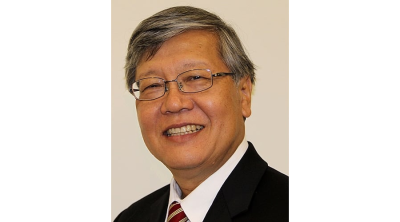
Unknown to many, while Japanese and Korea have no problems with China referring to East China Sea, the duo together with their alliances are often worried about the South China Sea.
Rightly so. Then again perhaps this issue has been overblown out of proportion?
It is time to get a handle on what South China Morning Post, one of the leading English news portals, had meant on its publication in the October 17 version of the news print on “practical breakthrough” in the South China Sea.
First and foremost, the paper reported that China and Malaysia had agreed that Malaysia’s national oil rig i.e. Petronas, one of the largest companies in the world, should continue to operate in the South China Sea.
Lacking in details, the paper did not provide any exact locations of this mutual approval; just as Beijing, for the longest time, has always made a generic claim on the South China Sea based on historical claims that go back hundreds if not thousands of years.
While it is good to learn history — very good — over learning any distorted version of it is also deadly. That’s when a country could become hyper-nationalist with expansionist or revisionist aims.
Even Chairman Mao of China once told a high-powered Japanese delegation to Japan in the early 1970s that the latter “should stop apologising” to China, to which Mao continued: “You are a nation state after all. Too much it is not good for yourself too.”
In other words, it’s time for Japan and China to move on in order to move up (the value chain).
As Deng Xiaoping, the Paramount Leader of China, would have it in 1980, it was nothing short of a prerogative to create a prosperous China as stated in their national development program in 1982, known as “Xiao Kang Sher Hui,” a self-sufficiently prosperous country: a term that the likes of Prime Minister Anwar Ibrahim of Malaysia once explained to the highest leadership in China in June 2023 that China’s goal seems to have similar trajectory.
Although in the case of Anwar, he referred to it as “Madani”, a civilisational aware and cognitive nation, that sheer intellect alone cannot drive a country forward. That must be a humanistic ethos in any logically deduced, economic, scientific and strategic programs.
Now before we go deeper into Anwar, who is effectively the true Foreign Minister of Malaysia, as per the tradition of Malaysian foreign policy, notwithstanding the fact that Mohammad Hassan is the formally designated Foreign Minister, time to ponder quickly on why Anwar has such a unique set of belief systems?
After all, when Anwar let it slip in February 2024 during a visit to Sydney, Australia, not even the Capital of the Down Under, that Malaysia was willing to “negotiate” — although to be fair to Anwar who had meant to say “discuss” as he corrected himself in Australia — that Malaysia and China will handle their bilateral issues on South China Sea from the standpoint of dialogue and diplomacy, the 10th Prime Minister of Malaysia was panned by the opposition press in Malaysia Now as verging on betraying Malaysia.
In fact, Muhyiddin Yassin, whose very electoral mandate in serving as the 7th Prime Minister of Malaysia for a mere 17 months from March 2020 to October 2021, of which the whole tenure was marked by total lockdowns, without his parliamentary mandate being tested in the lower house of representatives, led the ceaseless attacks against Anwar. Ostensibly on the flimsy ground, if ever Muhyiddin had one at all, that Anwar was a traitor to Malaysia.
The fact of the matter is that it has always been the tradition, literally the foreign legacy of Malaysia, to handle all border issues with quiescent yet concurrently dynamic foreign policy in the Ministry of Foreign Affairs since its independence in 1957 as “Malaya”, for that matter as “Malaysia” with the establishment as a federation that also comprised of Singapore, Sabah and Sarawak in September 16, 1963, although 22 months later, Singapore separated with Malaysia on painful though still very peaceful ground.
Since then, Malaysia and Singapore have never traded a single bullet, an envious record granted that Malaysia is 640 times larger than Singapore.
To the rare few in the know, Malaysia had border issues with the likes of Brunei, Thailand, the Philippines, and indeed, Indonesia.
At its founding on August 8, 1967, Malaysia was the one country among the five founding members that had some form of nettlesome border problems with all other four countries that formed the now very successful the Association of Southeast Asian Nations (ASEAN), of which Malaysia has officially taken over as the Chair and its related summits on October 11, 2024 for a duration of one year, although it would run into the end of November 2025, potentially December too, to allow the Philippines to take over.
Anwar and his special negotiator Raja Nurshiwan could achieve a “breakthrough” precisely because Anwar had long understood from one of the most powerful thinkers at the University of Gothenburg in Stockholm, Sweden, invariably, Parvez Manzoor, the “extremity of logic” is, for the lack of a better word, nonsense. Why?
History has shown that when humanity writ large start asking and attempting to solve questions such as “who” or “what” comes first, the one who does the intellectual inquiry, no matter how systematically laid out, is bound to lead to self-induced and imprisoned totalitarian ideology.
Take the notion of some countries that since Islam is holistic and total, therefore all countries with some or all Muslims must by logical deduction have an “Islamic state” or “government”.
To Parvez Manzoor and the likes of Anwar, a supremely bookish person since the heydays of his time at the elite Malay College of Kuala Kangsar, notably known as the Eton of the East, this axiom is untenable.
Parvez Manzoor wrote in “Futures” in 1992 that while Islamic “is totalistic”, which he accepts, he rejects that any country or polity with some or all Muslims must be an “Islamic polity”.
To demand nothing less than such would be to make that very construct, national, regional or otherwise, a project of totalitarianism, the latter being a death blow to any kind of common sense which is badly needed in any kind of society, domestic or otherwise.
In observing the “practical breakthrough” to latch on to the phrase once again, Malaysia and China are jointly trying to untie one of the most hyped-up Gordian Knots in the world: the South China Sea Conundrum.
It is often said that China has an uncompromising stance on all issues of sovereignty. Scholars often point to China’s hardline view on Taiwan, Tibet, for that matter, what Oliver Schell, a China critic, cammed Tiananmen-like issue on Hong Kong’s ostensible compromise of its human rights.
Yet, there are many strains of highly powerful scholarship, such as that spawned by Alistair Iain Johnston and Michael Taylor at Harvard and MIT’s Department of Government, although MIT prefers to call it the Department of Political Science, where it has been shown time and again that modern China since its founding 75 years ago — a mere blip in its self-declared 5,000 years of living history — does like to engage in diplomacy. Only that it often drives a very hard bargain too.
But can anyone seriously blame the policy-makers in China when all it has known over the last 150 years, twice its independence as the “People’s Republic of China” (PRC), has always had its elites forced at the point of “Crowbar” or “Guns boat diplomacy” to cede their territories to foreign powers from far away as Germany, using the Pacific shoreline of China as the metric to do the count.
Indeed, Shandong Province alone is as big as France, the late Singapore Minister Mentor Lee Kuan Yew liked to remind his audiences. Nor was the population of Shandong at any point since 1789 — the point of departure of France’s First Republic, at which the current one is the fifth — ever smaller in number than the total population of France.
Given the fact that Shandong was the birthplace of Confucius (250 BC), this province in particular had the time and population advantage, indeed, language and territorial congruity, once again, continuity, to subject the neighbours and other powers alike to ideological terror.
Yet mention Confucianism at any given point over the last 2,500 years, Confucianism is analogous – totally — to being a Gentleman, alternatively, the upstanding version of the Lady.
Both being courteous and thoughtful to the fault, which once again is the social basis of South Korea and Japan, in turn, Vietnam and the whole of the Chinese diaspora, not unless any one of them have abandoned the concept of “self-cultivation” (han yang), or what Professor Tu Wei Ming at Yenching Academy of Peking University likes to call “nei han” (inner self-cultivation).
Always punctilious to a fault, over and again, on how to guard one’s correct posture, speech act, even how one breathes and uses the chopsticks.
While one can, without a doubt, wait for more details and revelation over the “breakthrough in Sino-Malaysia relationship, which is marking its 50th anniversary, with Malaysia being the first country in Southeast Asia to diplomatically recognise China in 1974, at a time when Communist insurgency in the tropical hinterland of Malaysia was still 15 years from ending, indeed in 1989, as marked by the fall of the Berlin Wall, an event that also suggested the end of the first Cold War, the fact of the matter is China has allowed South China Morning Post in Hong Kong to make the declaration. Not bad.
In fact, the actual modus vivendi between China and Malaysia is more than this description. Why?
To begin with, Malaysia and China have agreed that it would not make sense to be tugging and pulling the boats and coast guards of one another let alone shooting powerful jetstream of seawater into the armed and unarmed vehicles of one another; the likes of which became a prominent feature in Sino-Filipino relationship since June 2024, often catching global headlines more damning than events in Ukraine and Gaza.
With commentators who has grown cynical of China’s professed goodwill to stick to talks and diplomacy as sheer bluff; if anything, a prelude to the total domination of almost every other claimant.
Second, by agreeing to working things out practically, where the oil wells of Petronas have been drilling off the coast of Sabah and Sarawak since 2013, two years after the major discovery of its oil and gas, indeed by two of the largest states in Malaysia, China has understood, or at least begun to understand, that it cannot act as a total bully without risking the total loss of trust from the 7 billion people in the Global South.
Third, the drilling areas are within the Exclusive Economic Zones (EEZ) of China, which is why Petronas and the Malaysian government were committed to extracting the oil and other fossil resources.
With the shoreline of Hainan Island, China’s most southerly borders being 2,000 km away from Malaysia’s EEZ, it does beckon many in Malaysia and ASEAN to wonder what was the basis of China’s maritime claim?
If China is keen on Malaysia’s Deep Sea technology, there is no reason why Petronas cannot work with Sinopec in the South China Sea or globally.
Fourth, while the word “South China Sea” seems to bequeath China with a seeming claim, this cannot be true since India does not claim the whole of the Indian Ocean for that matter can it do so.
In fact, Mainland Chinese refer to their southern ocean front as “Nan Hai” or South Sea. The word “South China Sea” is but a historical quirk in the lexicon of sailors and cartographers.
As things stand, there is no reason to get into the nitty gritty over what has been agreed or otherwise.
If China wants the goodwill of the Global South, it literally does pass through the “South” China Sea granted that up to US$6 trillion of maritime bound trade that courses through this semi-circle oceanic template.
If China insists on pressing ahead with its claim against Malaysia, with Malaysia lacking the naval prowess of its own, both would have simultaneously lost the “Global South” in a lose-lose proposition. How?
One, Anwar would not be able to project his statecraft as the highest form of civil and civilised diplomacy in an age characterised by the “barbaric” great and small wars peppered all across the Global South and North.
Two, all the political and corporate leadership of China would not have been able to convince the world that China comes with peace in mind — not indeed, never to take another geography piece by piece, with or without the deployment of force.
To be sure, while Professor Osman Bakar, the 7th Rector of the International Islamic University of Malaysia, has yet to weigh in on any geopolitical and geo-economic issues, one must remember that Anwar has entrusted him to lead the Confucian-Islamic Dialogue, not just nationally but regionally and globally.
A template that falls squarely into one of three President Xi Jin Ping’s Global Civilisational Initiatives (GCI), the other two being Global Security Initiative (GSI) and Global Economic Initiative (GEI).
Professor Osman Bakar, meanwhile, has also been instructed, once again by Anwar, his classmate at MCKK during their youth at the prestigious boarding school in Perak, a state that borders on the Straits of Malacca with a strategic naval dockyard just off its coast.
But University of Petronas is not too far from Lumut, for that matter, Pangkor Island, in turn, Lumut, the fortuitous stronghold, that has finally allowed Anwar to upend all attempts by all domestic forces combined to thwart the mercurial Anwar from becoming the Prime Minister, an office that he could have won hands down in the General Election in 1999 had the Malaysian Chinese voters then not been made gullible to the fear-mongering of the establishment of that time: that a vote for Anwar meant a Hobbesian Malay-beat-Chinese future — a theme ironically carved into the mass psychology of Chinese Malaysians by the late Lim Kok Wing, the only founder of a university without any academic credentials.
A feat that could not have been achieved without the support of Mahathir Mohammad, who has just been checked out of the National Heart Institute of Malaysia for the umpteenth time.
In achieving a breakthrough with China, was Anwar trying to engage in any vindictive politics against Mahathir? As Bloomberg has inaccurately reported.
No. When JP Ong of CNBC asked Anwar of the same in an interview in early October, he was asked the same question: “Were, as Bloomberg had reported, you seeking revenge against Mahathir?” Anwar calmly replied: “JP, being a Prime Minister is itself nothing more than that.”
Anwar was right. He came to office on November 24, 2022 on the back of a nation that had come out in tremendous support, at more than 82 per cent, to fairly and honourably decide who would helm the Malaysian government.
Even the Conference of Rulers, one of the most important barriers in forming a government, unanimously agreed among the nine Sultans that Anwar should indeed be appointed.
But it is often lost on many, especially the likes of James Chin, a political scientist whose specialty is Sarawak, not South China Sea, let alone Malaysian Studies, at University of Tasmania in Australia, that issues which affect Malaysia and China can often be turned into grand strategic opportunities.
Invariably, based on what the eminent Professor Osman Bakar called “Wasatiya,”, an Arab-Islamic idiom that is of the same root meaning as “zhong yong”, defined by Confucius as the “Middle Path”, one that alternates between two or more extremes.
Now, no one is saying that the Sino-Malaysian relationship will prosper “without any limitations” from now onwards.
With the Director-General of the National Security Council to helm the talk with his Chinese counterpart in China, tremendous caution and calculation have been put into producing a win-win-win scenario.
China and Malaysia are not the next pair of battering rams stirred by external provocation. China and Malaysia can prove to the Global South and North that intractable issues can be ameliorated with sufficient political will from all sides; and the world does not have to wake up every morning wondering if the next World War will indeed come from South China Sea, not the Middle East or Eastern Europe, as many Western pundits have concurred.
Did Anwar just miss the Nobel Peace Prize? No. Anwar is gunning for the “Bridge” Prize of holding the North and South together, not unlike what he is doing in Malaysia by holding together the East and West, divided ironically by a strip of water in the South China Sea.
(Prof Dr Phar Kim Beng is Expert Committee Member of the Centre of Regional Strategic Studies, CROSS, and Professor of ASEAN Studies at ISTAC-IIUM.)
ADVERTISEMENT
ADVERTISEMENT








































